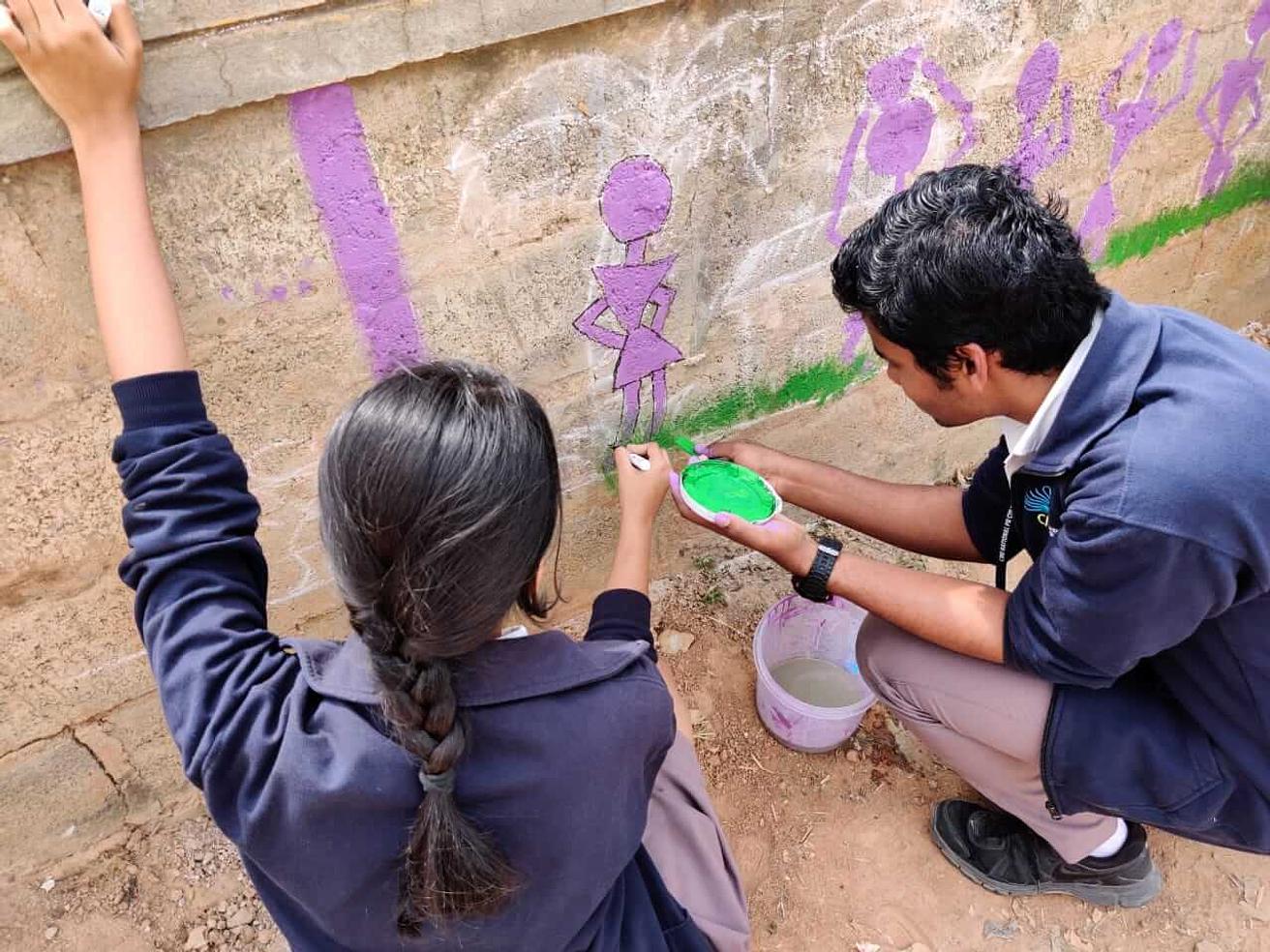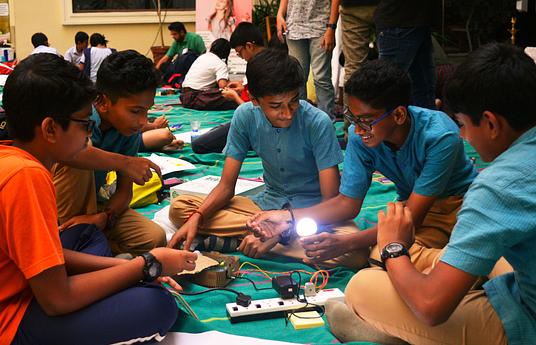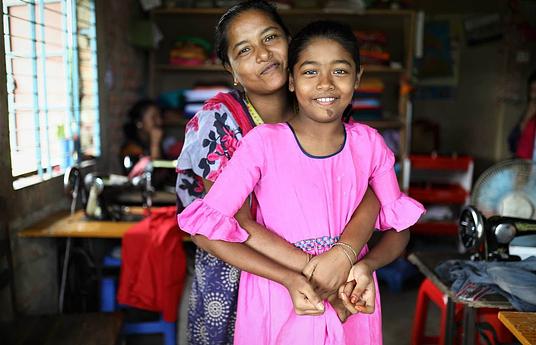Reap Benefit works with the youth and they have been responsible for several impact programs across the country. They have ensured that innovative processes driven by students have been put in place. With every following year, we’ve witnessed their working model evolve to better suit the changing needs of local civic issues.
Our journey started in 2015, with us working on impacting our school and then working with a neighbouring under-financed public school. What truly set the Reap Benefit team apart was that they ensured that the students focused on their own school first. There was a strong focus on creating context solutions to local issues such as how private schools could improve systems of water management and waste management. After a rigorous Bootcamp, we were able to save 21,58,444 litres of water that year by introducing student-designed aerators and other easy hacks by using bottle caps and rubber bands to reduce the water flow time to ensure that water was not wasted.
Through the camp, students developed skills such as empathy, problem-solving, data-driven curiosity, teamwork and creativity. On embarking on a fact-finding mission, they found the source, storage, usage and disposal (SSUD) of all the water used in the school. Few students began working on their own solutions to control water wastage in the campus. They also prototyped solutions ranging from wool and plastic tags to soldered wires to reduce the flow time of a push tap. The entire process got students to be engaged in design interventions, water audits and led to behavior change.
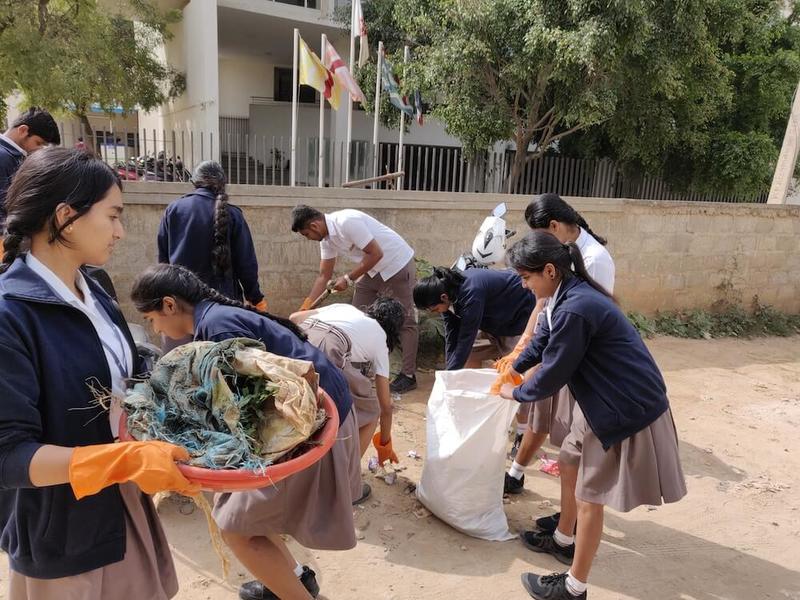
In our second year, we continued to work on saving water in the campus and went to another public school in the neighbourhood. This time around, students were taken through the design thinking process to solve problems consisting of four steps: Discover, Investigate, Solve and Share. Students internalized this process through activities like Problem Solving Treasure Hunt and group discussions. By the end of the academic year, they managed to saved2,34,900 litres of water and designed waterless urinals and composting mechanisms at the public school. They also volunteered on the celebrated national Swachh Bharat Day (Clean India Day) to fix water supply related problems.
With support from Reap Benefit mentors, Team Ingenium conducted a book collection drive to donate simple English books for students of younger grades. They led storytelling sessions as well. Samskrathi, one of the students, found profound joy in reading storybooks to the children - shows a great example of our students exercising empathy in their daily lives. She was not looking for accolades or appreciation for organizing a drive and making it happen.
Team Ingenium members Samskruthi Sharma, Ayesha Bhansal and Sai Priyanka found out that for every 1 litre of purified water, a water purifier filter rejects nearly 3 litres of water. This adds up to at least 10 litres of water being wasted in each household. They designed and prototyped a product that would help them to harvest this water at source and use it for household purposes like mopping and flushing. Mentored by their Principal, they also represented with this idea at the Green Hackathon held in November 2016 at RMZ EcoSpace as a solution to solve environmental problems and received a special mention from the judges for their passionate presentation.
Deriving from the ‘Solve Small, Dent Big’ Reap Benefit mantra, the students developed their own “Small is beautiful. Small is smart. Small is meaningful and organic. Small solutions don’t need a lever large enough to move the world”. They were fuelled by one iron resolve, one bright idea and a single burst of channeled energy.
The following year, the students realized that the public school was in immediate need of some changes such as a drip irrigation system, better drainage, and other supplies. Thus started a campaign to raise the required funds. The campaign turned out to be a huge success as the team ended up raising INR 17500. This was a massive boost to the spirit of the students. The funds were used to install a drip irrigation system and get a plumber to look into the drainage problems and fix them. The funds were also used to buy paint using which the students painted the walls of the toilet and the handwashing area. An exhibition showcasing their journey of problem-solving was held at the end of the year.
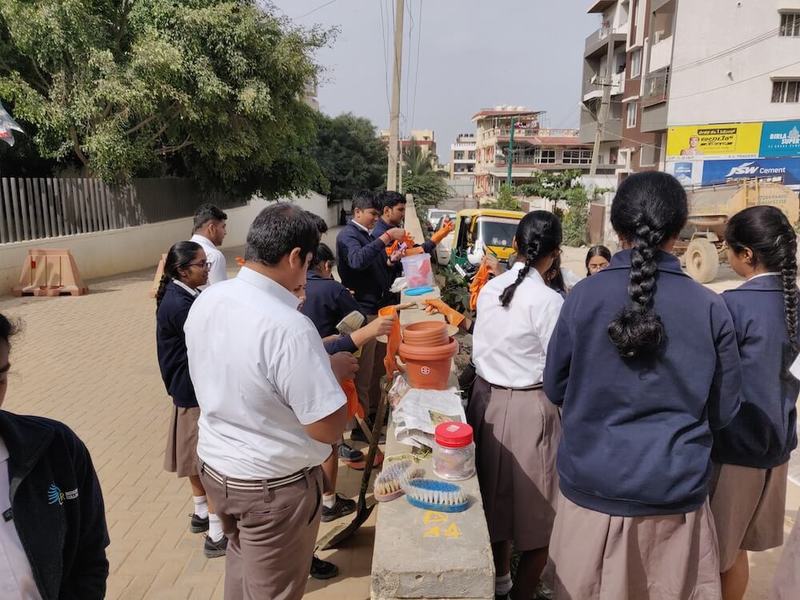
As our engagement with Reap Benefit continued, a system of micro-planning engagements with the students was developed. One could note what events were being planned in advance and students could now plan how things would be taken forward. Microplanning gave the facilitators the opportunity to plan their schedules to include Reap Benefit's work.
Reap Benefit as an organization has constantly worked towards creating and nurturing youngsters to implement small initiatives in every community. Even though the idea or initiative may be small, its impact is measured to be huge. Every facilitator from Reap Benefit has been warm, enthusiastic and ready to listen to the ideas of the young minds talking to them. They listen, prod, push and motivate the students to come up with better solutions and to implement it in their homes and communities.
A student from our fourth year of association with Reap Benefit notes:
“My opinion about public schools completely changed after the visit. When I personally saw the school and met the students there, I felt pleased. During the visit, we identified some problems. Later the students were divided into groups which included the students from the public school, and we were given separate problems to work on. At the end of our second visit, we fixed locks on the washroom doors and urinals in the boy’s washroom. We also made cardboard dustbins for dry waste disposal, fixed handwash dispensers, and also installed sanitary dustbins in the girl's washroom. The water tank was cleaned scrupulously by the students. We explained the importance of personal hygiene and sanitation to the students of the public school. We also painted the compound wall of the school. They were also very sensitive regarding the garbage thrown by people in front of the school and requested us to write, paint the prohibition on the wall. We were 2 teams together who painted the walls.It was a great learning experience and it nurtured our problem-solving skills. One very important thing I realized was that we are never satisfied with the provisions provided to us, whereas the children of this school were content with what they had. We must learn to be like them.”
There could be no better example of real-life learning and learning beyond the boundaries of the classroom! It was but natural for us to have collaborated with Reap Benefit for the fifth year, as there was no need to rethink our engagement after the enthralling 4 years. In this past year, students went through the innovation process and also conducted a session for 100 students to build aerators. The confidence of the young students speaks volumes about how well this has impacted them.
Reap Benefit has provided a safe space for students to collaborate and build leadership. We believe they are enabling them to become revolutionaries who are enthusiastic about problem-solving and inspiring them to be change-makers in the world. Students who were shy, and insecure saw a major shift and overcame their difficulties. It has inspired, motivated and set a purpose for students. We’ve also witnessed students going beyond the Bootcamp when it came to solving civic problems. Many continue to volunteer and spearhead campaigns while others engage with local governance in various capacities. It has been a pleasure building a strong relationship with Reap Benefit and we look forward to many more years of creating impact!
Reap Benefit and CMR Pre-University College (ITPL) in Bangalore recently celebrated 5 years of fantastic engagements. We thank Mrs. Anitha Iyer, the Principal of the College and Sidharth Santhosh, an alumnus who serves as a Youth Board Member at Reap Benefit, for sharing their experience and the impact the innovation has had on the students throughout the years.
Check out Reap Benefit's innovation page here and subscribe to our newsletter to get such articles straight into your inbox!
